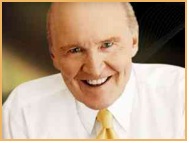Leadership Courage Series # 36
 Nine earmarks of courageous leadership were proposed in his blog series. As we wrap, here’s a review.
Nine earmarks of courageous leadership were proposed in his blog series. As we wrap, here’s a review.
The first is this: Courageous leadership is not about skill, technique, or knowledge. It is, most of all, about the presence of the leader as he or she moves through life.
Since Christian ministry is about moving people into ever-greater Christ-likeness, we’re seeing people continuously transformed all over our churches and ministries. Right?
No. Not so much.
And, it’s not surprising.
Interview two dozen Senior Pastors and ask them to explain why they do what they do, in just one or two sentences. Few would identify their central task to be that of producing maturity-in-Christ in those they influence. Since ministers don’t recognize the game they’re in, it’s no wonder there’s little spiritual maturity in American congregations.
 Jack Welch, the legendary CEO of GE is credited with advising someone starting a career with a new company: “Find out how they keep score… and then score!”
Jack Welch, the legendary CEO of GE is credited with advising someone starting a career with a new company: “Find out how they keep score… and then score!”
In the body of Christ, “scoring” means growing people into Christ-like maturity. Imagine if every one in Christian ministry was devoted to this outcome. Once you’ve set your priority as people development, you’ll begin to see everything thru this lens. In all you do: planning, teaching, budgeting, conducting services, enfolding guests, you’ll be thinking developmentally. You begin to recognize every situation, crisis, and setback as an opening to champion your people toward maturity.
And, there is no one whose progress in spiritual maturity is as important as that of the senior minister. In seminary you were trained to present the truths of Scripture with integrity. Many do this well enough. But few recognize the priority to presence those same truths with just as much integrity.
I don’t know why this is such a shock to professional pastors. Maybe it’s an unintended consequence of the post-enlightenment focus on rationality as the primary means of Kingdom advance.
Paul’s counsel to Pastor Timothy applies to all of us: “Watch your life and doctrine closely” [I Tim 4:16a]. As the key influencer in Ephesus, Timothy’s way of life was as important as his doctrine.
So, what is “presence”?
A pastor with presence has a clear sense of who she is and who she’s not. In other words, your sense of “personhood” is solidly anchored in who you are in Christ. You’re also very clear about what you’re for.
Why you’re alive.
What you’re committed to bring to the world God’s placed you in.
You’re sense of self and your value is neither augmented nor diminished by the actions and decisions of others. So, you can be bold, consistent, and clear despite your circumstances.
 It’s the difference between Russell Crowe’s Spaniard and Joaquin Phoenix’ Commodus in the movie Gladiator.
It’s the difference between Russell Crowe’s Spaniard and Joaquin Phoenix’ Commodus in the movie Gladiator.
The slave has it. The Emperor does not.
Got it?